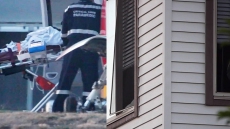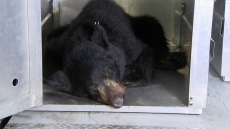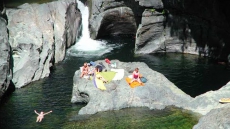OTTAWA — Thousands of Iraqi refugees found less work and earned less money in Canada than refugees from elsewhere who arrived during the same period, according to an internal government case study into the Iraqi resettlement program.
The 19,427 Iraqis who arrived between 2009 and 2014 faced numerous barriers, including the trauma of the war, greater medical needs and a lack of English and French compared to others, the study found.
The data offer insight into what lies ahead for the nearly 30,000 Syrian refugees who have arrived since November, because the demographics of the two groups share some similarities, researchers say.
But the study also reveals that the groups settling Syrians last fall and earlier this year reported many of the same challenges that had already been encountered during the Iraqi experience.
The surge of Iraqi arrivals strained resources, while the complexity of the cases made it hard to provide the right support, researchers were told.
Refugees also received little information about what to expect when they arrived and struggled to find affordable housing on income supports that didn't cover the high cost of living in urban centres, the study found.
All of that has an influence on outcomes, and the fact that lessons appeared to go unlearned suggests governments need to do a better job thinking about how they respond to refugee crises, said Carl Hetu, the Canadian national director of the Catholic Near East Welfare Association, which has worked with refugees from both Iraq and Syria.

"It is always about the now, and things that look good on Twitter on Facebook," Hetu said. "But you need to work at it."
The Immigration Department said it did apply some lessons from the Iraqi experience to the Syrian program.
Those lessons included improving communication with sponsorship groups, expanding the number of cities receiving government-assisted refugees and the use of international agencies to help in resettlement.
A more material change for the refugees, however, was an increase in the maximum amount of income support a family is eligible to receive — $50,000 as of May, up from $25,000.
"Some things unique to the Syrian resettlement initiative, including the resettlement of 25,000 refugees in about 100 days, made some of the lessons learned difficult to apply, but which continue to inform our processes as we go forward," department spokeswoman Sonia Lesage said in an email.
Syrians also arrived in a different context: there was more public attention, including groups actively stepping up and offering jobs, language classes and even private-sector support to help cover housing costs.
And though Iraqis were older and better educated than Syrians, they were also arriving just as the global economy began melting down, likely making job prospects harder in the short term, said Jennifer Hyndman, director of the Centre for Refugee Studies at York University.

Nonetheless, the Iraqi study found that privately sponsored refugees fared slightly better than their government assisted peers.
More Syrians so far are government assisted, she noted and that could suggest the outcomes may end up worse.
By their third year in Canada, privately sponsored Iraqi refugees were earning $21,000 a year, compared to $17,000 for government assisted refugees. About 53 per cent of private refugees had some kind of work, compared to 30 per cent of their government assisted counterparts, the study found. Non-Iraqi refugees were earning $22,000 a year and about 57 per cent had some kind of work.
The Iraqi program was launched by the Conservatives in 2009 with an initial promise to resettle 12,000 people over three years, but was later expanded to be 20,000 by the end of 2014.
At the time, it was the largest commitment to refugee resettlement by the Canadian government in more than 20 years.
The Tories often pointed to the Iraqi program when criticized for an apparently slow response to the Syrian crisis; in the same period the government was resettling Iraqis, it only committed to taking in 1,300 Syrians.
The case study, dated April 2015, and the research was "expedited and completed in two months to inform policy directions," according to the report, which was obtained by The Canadian Press using the Access to Information Act.
A LOOK AT HOW THE IRAQI REFUGEE POPULATION COMPARES TO SYRIANS BY THE NUMBERS

Iraqis:
19,427: number of refugees resettled in Canada between 2009 and 2014.
8,340: number of those who were government assisted
11,087: number who were privately sponsored.
70.2: percentage who reported speaking neither English or French.
30.5: percentage of those under the age of 18.
10: percentage of those with a university degree.
Syrians:
29,713: number resettled in Canada since Nov. 4, 2015.
16,129: number of those who are government assisted.
10,762: number who are privately sponsored.
51: percentage who, as of January, reported speaking neither English nor French.
40: percentage refugees who, as of January, were under the age of 14
2: percentage of government assisted refugees, who as of January, had a university degree.
SOURCE: Immigration Department reports





